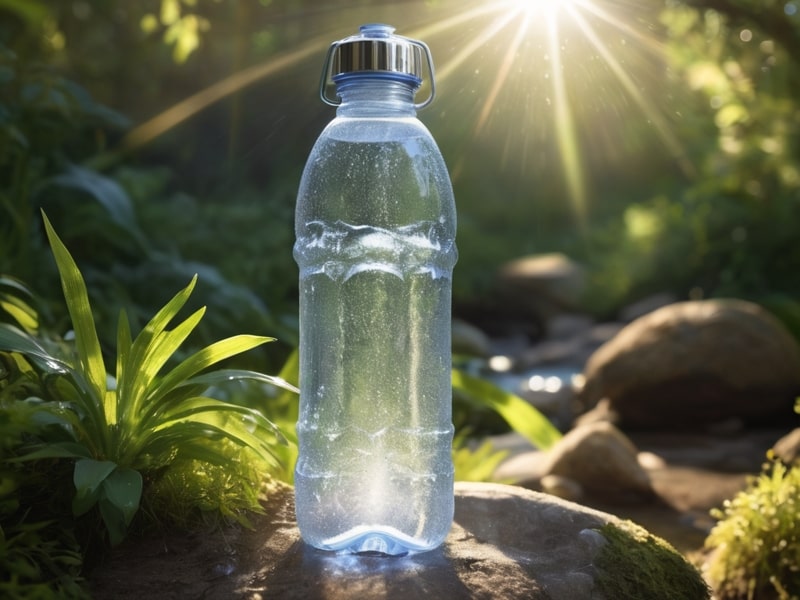Last updated on December 19th, 2024 at 09:34 am
Water is life’s MVP—let’s be real, nothing happens without it. While global access to clean drinking water has thankfully improved over the years, water from bottle has emerged as a go-to choice for its sheer convenience. Whether you’re hustling at work, hitting the road, or just trying to stay hydrated while binge-watching your favorite show, water from a bottle offers hydration in a snap.
But hold up—it’s not all sunshine and rainbows. Bottled water has its share of critics, with debates swirling around health concerns and the environmental toll of all those plastic bottles.
In this guide, we’re diving into the nitty-gritty of bottled water: its different types, health perks, and yes, its impact on our planet. We’ll also tackle the age-old question—tap water or bottled? Spoiler alert: the answer might surprise you.
What is Bottled Water?
Bottled water is exactly what it sounds like—water that’s been treated, purified, or sourced from natural springs and neatly packaged in bottles. Its rise to fame? Convenience, reliable quality, and availability, especially in areas where safe drinking water can be hard to come by. From road trips to gym bags, bottled water is practically everywhere.
Types of Bottled Water: Which One is Right for You?
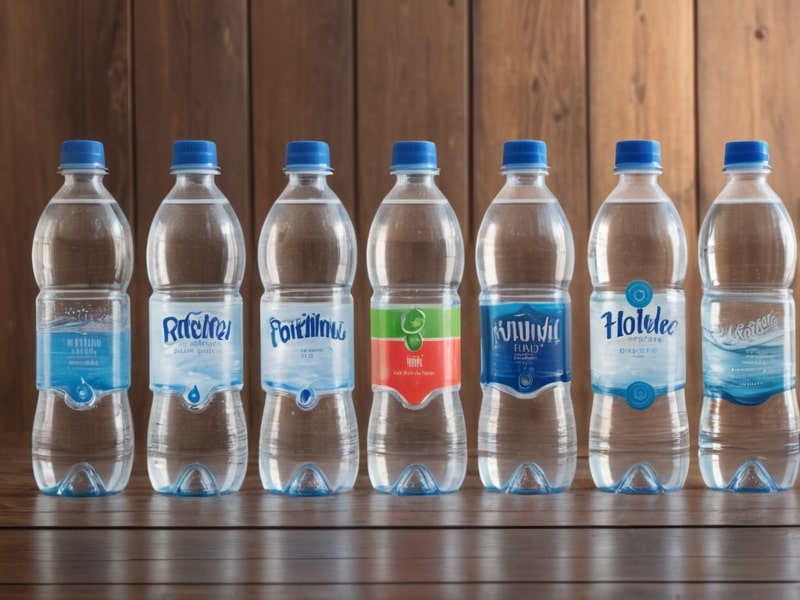
1. Spring Water
Picture this: crisp, refreshing water straight from an underground spring, bottled at the source. Spring water is often rich in minerals, giving it a distinct, clean taste that’s a hit with the health-conscious crowd. Bonus? It’s typically less processed, so you’re getting that natural vibe in every sip.
2. Mineral Water
If water could have a power-up, this would be it. Mineral water comes packed with naturally occurring goodies like calcium, magnesium, and potassium. To earn the “mineral” badge, it needs at least 250 ppm of dissolved solids straight from the source. People love it not just for hydration but also for a little nutrient boost.
3. Purified Water
This one’s the overachiever of the water world. Purified water often starts from municipal sources (yep, tap water!) but goes through rigorous filtration like reverse osmosis or distillation. The result? Crystal-clear, impurity-free water with a neutral taste—perfect for those who want their water as pure as possible.
4. Distilled Water
Distilled water takes purity to a whole new level. It’s boiled, vaporized, and collected, leaving impurities and even minerals behind. While it’s ultra-clean, the lack of minerals can make it taste a bit, well, bland. Fun fact: it’s often used for medical devices and scientific experiments, but hey, it hydrates just the same!
5. Sparkling Water
Who says water can’t be fun? Sparkling water brings the fizz, thanks to carbon dioxide. Whether naturally carbonated from springs or artificially fizzed up, it’s like soda’s healthier cousin. Some brands even add minerals for a touch of taste and health benefits. Cheers to bubbly hydration!
6. Alkaline Water
Alkaline water comes with a higher pH (8–9), and some swear it’s the secret to neutralizing acidity and staying extra hydrated. While the science behind these claims is still bubbling under, there’s no harm in enjoying it if you’re into trendy wellness drinks.
Pair your favorite bottled water with a dreamy Peaches and Cream dessert. It’s simple, satisfying, and fits perfectly into any occasion—or just a chill day when you want to treat yourself.
Health Benefits of Water from Bottle
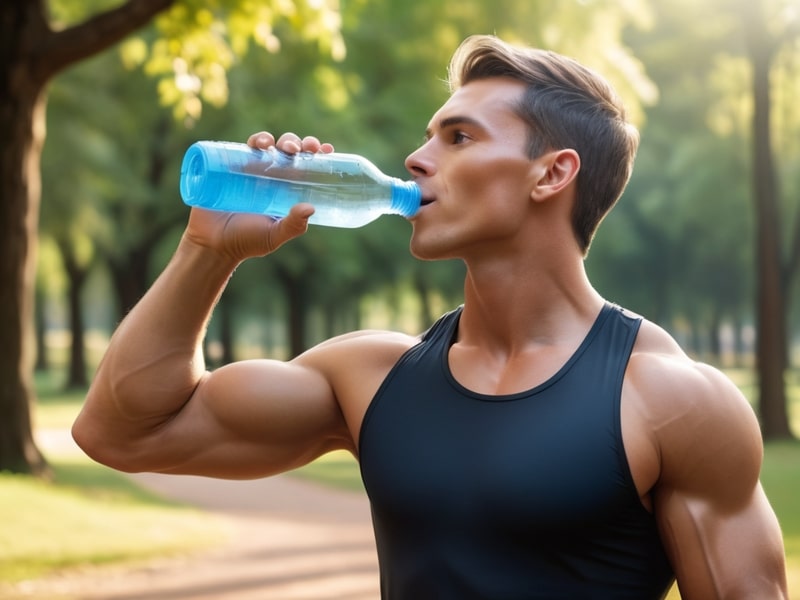
Sure, bottled water is convenient, but does it truly deliver more than good ol’ tap water? Let’s dive into the perks and see what all the hype is about.
1. Keeps You Hydrated Anywhere, Anytime
Bottled water’s biggest flex? It’s portable! Whether you’re running errands, hitting the gym, or stuck in traffic, having a bottle handy makes staying hydrated a no-brainer. Plus, let’s face it—grabbing a bottle on the go is way easier than hunting for a water fountain.
2. Packed with Essential Minerals (Depending on the Type)
Not all bottled water is created equal. Some types, like mineral or spring water, come loaded with natural goodies like calcium, magnesium, and potassium. These nutrients don’t just keep you hydrated—they help support strong bones, healthy muscles, and overall wellness. Hydration with a side of health? Yes, please!
3. Safe and Sound
When you’re in a place where tap water might be sketchy, bottled water is your safety net. It goes through strict testing and quality checks, so you can sip without worry. Peace of mind in a bottle? We’ll take it.
4. Fits Special Diets Like a Glove
Got specific dietary needs? Bottled water has your back. Low-sodium options work wonders for people with hypertension, while mineral-rich varieties give you that extra nutrient boost. It’s hydration tailored to your lifestyle.
Environmental Impact of Water from Bottle
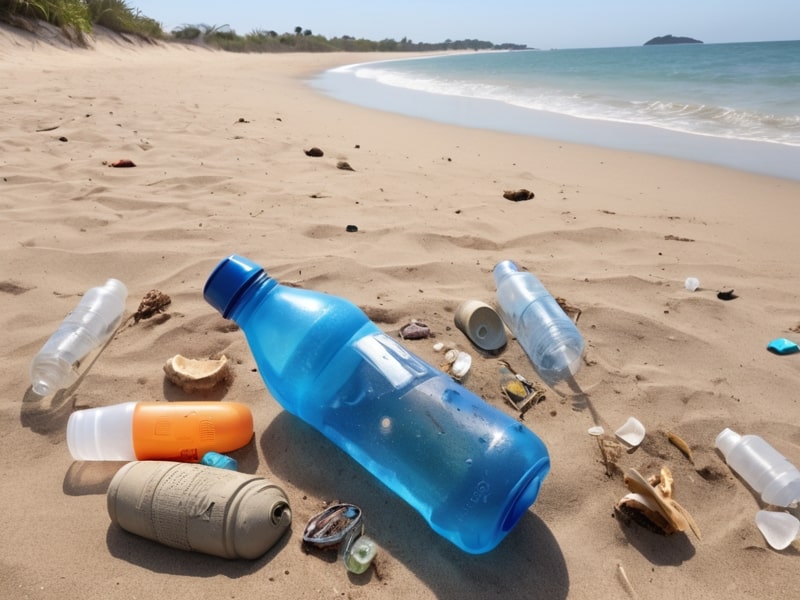
We all love the convenience of bottled water, but let’s talk about the not-so-pretty side of it—its environmental footprint. Spoiler: it’s bigger than you might think.
1. Plastic Pollution: A Problem That Won’t Go Away
Here’s the kicker: about 60 million plastic bottles get tossed every single day in the U.S. alone. That’s a lot of plastic cluttering landfills, oceans, and basically, everywhere it shouldn’t be. Oh, and they take centuries to decompose. Wildlife suffers, ecosystems suffer—it’s a mess we can’t ignore.
2. Energy Guzzler Alert
From bottling the water to shipping it around the globe, bottled water guzzles energy like there’s no tomorrow. And guess what? Its carbon footprint is way bigger than tap water’s, which skips the whole production-and-transport circus.
3. Draining Our Natural Resources
In some places, bottled water companies are draining springs and aquifers like they’ve got an endless supply. Spoiler alert: they don’t. This over-extraction can leave local communities and ecosystems high and dry—literally.
4. Eco-Friendly Solutions: A Ray of Hope
Thankfully, some companies are stepping up with biodegradable bottles and recycled packaging. But let’s be real—the best solution is to go reusable. Grab a stainless steel or glass bottle and refill it with tap water when possible. Your planet will thank you.
The Microplastic Reality
Here’s the twist: recent studies found more microplastics in bottled water than expected. Yep, those tiny plastic particles could be hitching a ride in your drink. It’s a double whammy—bad for the environment and potentially sketchy for your health.
To learn more about this issue, check out this study on microplastics in bottled water.
Water from Bottle vs. Tap Water: What’s the Difference?
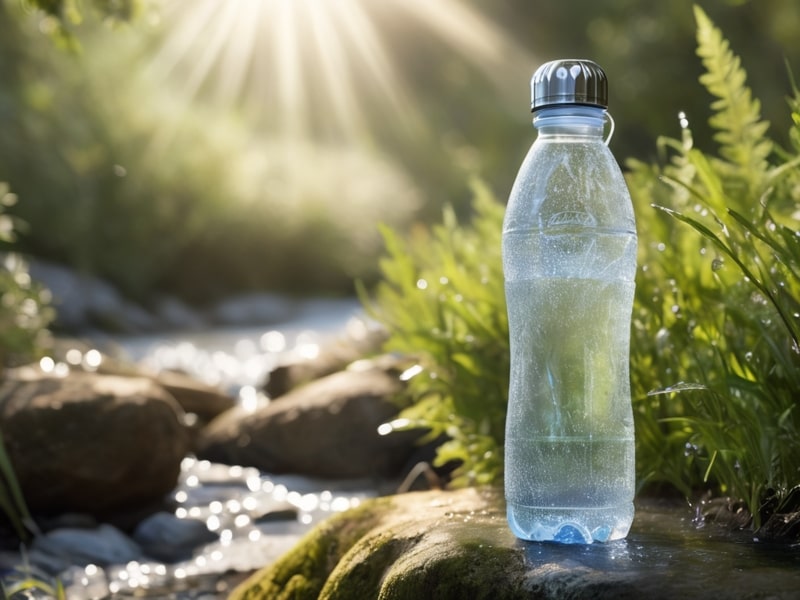
The debate rages on: is bottled water really better than tap? Well, it depends on where you live and what you value most—convenience or sustainability. Let’s break it down.
Pros of Bottled Water
- Convenience: It’s grab-and-go hydration at its finest. No need to find a faucet when you’re out and about.
- Consistency: Always tastes the same, no matter where you are. (Looking at you, funky-tasting tap water in some cities.)
- Safer in Some Places: In areas where tap water might not be reliable, bottled water can be a lifesaver—literally.
Cons of Bottled Water
- Cost: You’re paying for water…in a world where most of it is free. Enough said.
- Environmental Toll: All that plastic waste adds up fast—think landfills, oceans, and everywhere in between.
- Just Fancy Tap Water: Yep, a lot of bottled water is just filtered tap water in disguise. (Smart branding, though!)
FAQ About Bottled Water
1. Is bottled water healthier than tap water?
Not necessarily. Both are held to safety standards, but bottled water sometimes includes minerals like calcium or magnesium that might give it a slight edge in nutrition.
2. How long can bottled water be stored?
It’s good for 1–2 years, but don’t let it bake in the sun or sit next to a heater—heat can mess with the plastic and the taste.
3. Can I reuse plastic water bottles?
Technically, yes, but it’s not ideal. Over time, the plastic can break down and leach chemicals into your water. Instead, grab a reusable bottle (bonus points for stainless steel or glass).
4. Does bottled water expire?
Not exactly, but the plastic bottle does. Over time, it can start affecting the water’s taste—and not in a good way. Always check the expiration date on the label just to be safe.
5. What’s the best eco-friendly alternative to bottled water?
Reusable bottles for the win! Stainless steel, glass, or BPA-free plastic options are the most sustainable. Bonus: some companies now offer biodegradable or recyclable packaging if you’re still hooked on the bottled option.

